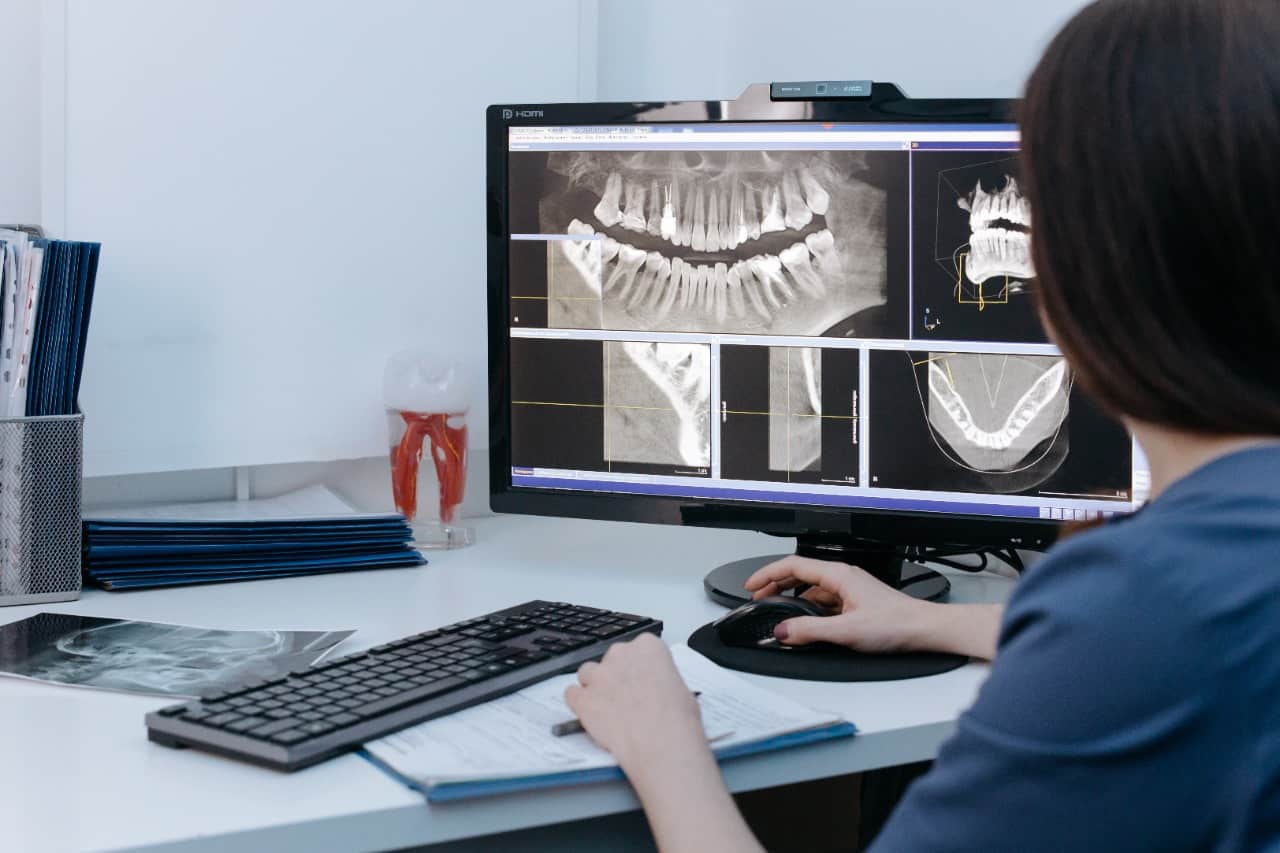At your routine dental checkups, your dentist in Fishers is likely to take dental x-rays. The images obtained through x-rays allow your dentist to see a clearer picture of your overall oral health, beyond what’s visible during a manual exam and cleaning. However, since all x-rays expose patients to some levels of radiation, you may be concerned about just how much radiation is in a dental x-ray and if they’re safe for you and your family. Let’s take a closer look.
Low Radiation, Low Risk
Most dentists nowadays use digital x-rays instead of older film versions. These digital images will often take clearer photos and expose you to less radiation than traditional film x-rays – about 90% less! This means that since there is a low amount of radiation, there is also a low risk. In fact, there is radiation all around us all the time, from the sun to cell phones, and even eating a banana. This is called background radiation, and dental x-rays of different types are comparable to how much background radiation we experience every day. According to radiology studies:
- One dental x-ray is comparable to one day of natural background radiation exposure
- A panoramic x-ray emits about the same as three days’ worth of background radiation
- Cone Beam CT images are equal to about 22 days of background radiation
Relatively speaking, dental x-rays from your Fishers dentist pose a low risk.
What Are Dental X-Rays Used For?
Your dentist may take x-rays for a variety of reasons, but most commonly, x-rays are used to monitor overall oral health. Images from x-rays can show the tooth structure that’s under the gums and help your dentist diagnose
- Decay or cavities early
- Bone loss
- Infections or abscesses
- Tumors or cysts
Outside of preventive care, dental x-rays can help your dentist keep an eye on tooth development and eruption in kids, aid in planning for restorative dentistry treatment such as dental implants, and overall allow your dentist to provide better, more accurate care.
How Many Times a Year Will I Need Dental X-Rays?
Keep in mind that dental x-rays are only used by your dentist in Fishers when necessary. This means that you may need x-rays more or less often than others depending on your specific needs and oral health history. Many adults should expect to get dental x-rays about once a year.
Common Types of Dental X-Rays
As mentioned above, there are different types of dental x-rays and each has its own level of radiation exposure. Each type of x-rays also has its own purpose.
- Bitewing – Bitewing x-rays are usually taken in a series of four, one for each quadrant of the mouth. They will show individual teeth in individual sections and can show areas of decay that your dentist may not see without the help of these images.
- Panoramic – As the name suggests, panoramic x-rays take images of the entire mouth, including teeth, gums, and jaw bone. Panoramic x-rays will show adult teeth waiting to erupt and can help plan treatments such as orthodontia.
- Cone Beam CT – One of the more advanced types of dental x-rays is a cone beam. These images will be portrayed in 3-D and show the entire tooth structure, nerves, bone, and tissue. Not everyone will experience this type of x-rays as it’s most commonly used when planning dental implant treatment.
Dental x-rays are a safe, effective, and valuable way to help your dentist provide thorough and complete care and can help keep your teeth healthy. As always, if you do have questions about the safety of x-rays, don’t hesitate to call or schedule an appointment with us.

